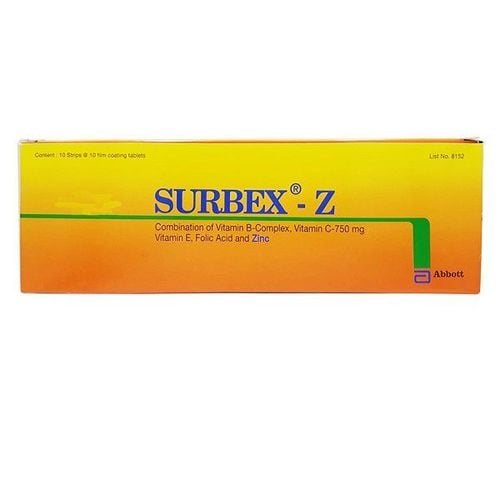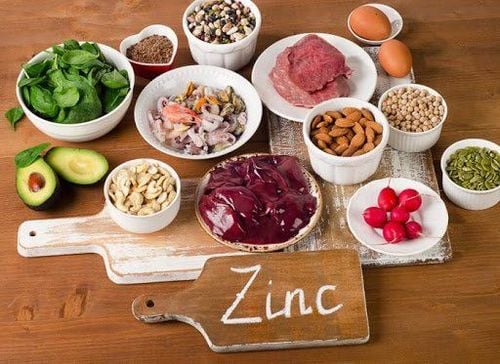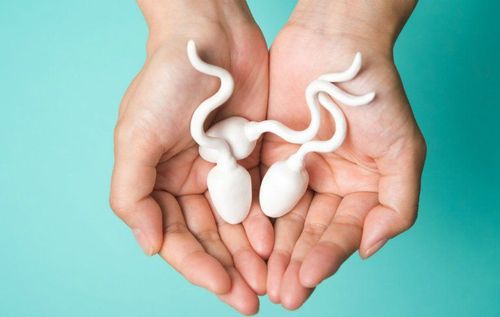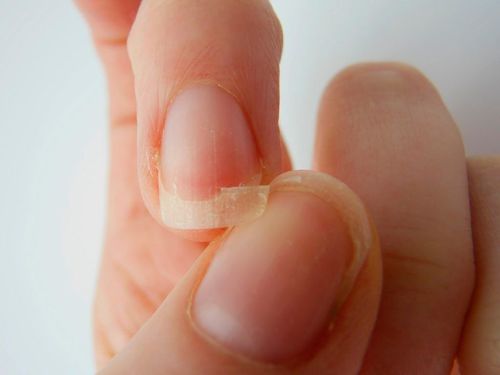1. The role of zinc in men's reproductive health
Zinc (Zn) is an important trace element, that affects the functional activities of many organs in the body. Although it only accounts for a small amount, zinc is a component that makes up at least 300 different enzymes and participates in hundreds of metabolic processes. Any deficiency or excess of zinc affects health.
Zinc is good for men, considered the "golden" mineral for reproductive and sexual health. The positive effects of zinc on male reproductive health are as follows:
- Zinc increases physiological strength and helps maintain long-term reproductive health: Zinc is an indispensable ingredient in the structure of testosterone. At the same time, zinc also plays an important role in the structure, synthesis and secretion of many other hormones. Zinc is extremely necessary for the sperm production process. Most cases of decreased sexual desire, decreased sperm count, and thin sperm are due to zinc deficiency.
- Help sperm increase mobility: For men, the concentration of zinc in semen is directly related to sperm quality. Frequent ejaculation can cause zinc deficiency. Each time a man ejaculates, his body needs about 5 milligrams of zinc, which is equivalent to about half of the zinc the body absorbs each day. If a man is deficient in zinc, it can cause decreased sexual frequency, decreased sperm count and quality, and abnormal sperm morphology. In addition, zinc deficiency is also the cause of sperm motility being 50% lower. Poor sperm motility is one of the causes of infertility in men. Therefore, zinc is a powerful assistant for men. Zinc supplementation for men will help increase the endurance and mobility of sperm when swimming to the egg for fertilization.
- Reduce the risk of prostate cancer: Zinc plays a very important role in the prostate. The amount of zinc is concentrated in semen and the prostate gland more than any other organ in the body. Zinc deficiency in men can cause benign prostate enlargement and lead to other changes in the male gonads. Therefore, zinc is related to fertility, especially zinc is important for men when they reach middle age - the age when prostate problems begin to appear. Moreover, zinc also can stimulate the body to produce a protein that has the effect of "paralyzing" cadmium - a dangerous substance that can cause prostate cancer.
- Thyroid protection: Zinc is one of the important minerals involved in the production of thyroid hormones. In men, if this process is interrupted, it will lead to a decrease in the amount of male sex hormones.

2. Assessing Zinc Concentration in Semen
Semen analysis tests evaluate various parameters, including sperm morphology, count, density, motility, and the survival rate of abnormal sperm. Additionally, specialized techniques can measure the concentration of zinc in semen. Typically, the zinc concentration in semen ranges from 0.3 to 1.5 μmol/L. Significant deviations from this range may indicate sperm abnormalities and potential fertility issues.
Conducting semen analyses and measuring zinc concentration can help identify the underlying causes of decreased sperm quality and male infertility. Based on the results, appropriate interventions can be proposed to enhance both the quantity and quality of sperm, as well as overall sexual health, thereby reducing infertility in men.

3. How to Supplement Zinc for Improved Reproductive Health
Zinc deficiency is linked to lower testosterone levels, decreased sexual desire, reduced sperm count and quality, and a higher risk of infertility in men. Research indicates that men with elevated zinc levels typically have healthier sperm compared to those with lower levels. Therefore, zinc supplementation is a crucial step in enhancing male fertility and improving sperm quality, which might help reduce infertility risks.
Knowing how to properly supplement zinc for men will help improve reproductive health. Men can increase the amount of zinc in their bodies in the following ways:
- Supplement zinc for men through diet: This is the best, simplest, and most effective way to supplement zinc for men. Foods high in zinc include lean beef, liver, chicken, egg whites, milk, seafood such as mackerel, squid, shrimp, clams and especially oysters. At the same time, men should eat a lot of whole grains, sesame seeds, green beans, yellow or dark green vegetables, and fruits such as lettuce, spinach, asparagus, and kale. Carrots and purple sweet potatoes are also rich sources of zinc. Fruits such as kiwi, apples, red grapes, and oranges should be eaten regularly.
- Supplement zinc for men through functional foods: Supplement zinc for men can be through functional foods containing zinc to increase libido, enhance vitality, and increase sperm quantity and quality. However, the use of drugs or functional foods must have the permission and guidance of a medical specialist.
In conjunction with zinc supplementation, men should adopt a healthy lifestyle, which includes:
- Limiting smoking
- Reducing alcohol and stimulant consumption
- Engaging in regular exercise
- Maintaining an ideal weight to avoid overweight and obesity
- Managing stress, anxiety, and tension
- Establishing a regular sleep pattern
- Practicing safe sex
In summary, zinc plays a vital role in men's health, particularly affecting sperm quality. Thus, maintaining proper zinc concentration in semen is essential for reproductive and sexual health.
To arrange an appointment, please call HOTLINE or make your reservation directly HERE. You may also download the MyVinmec app to schedule appointments faster and manage your reservations more conveniently.
To arrange an appointment, please call HOTLINE or make your reservation directly HERE. You may also download the MyVinmec app to schedule appointments faster and manage your reservations more conveniently.








